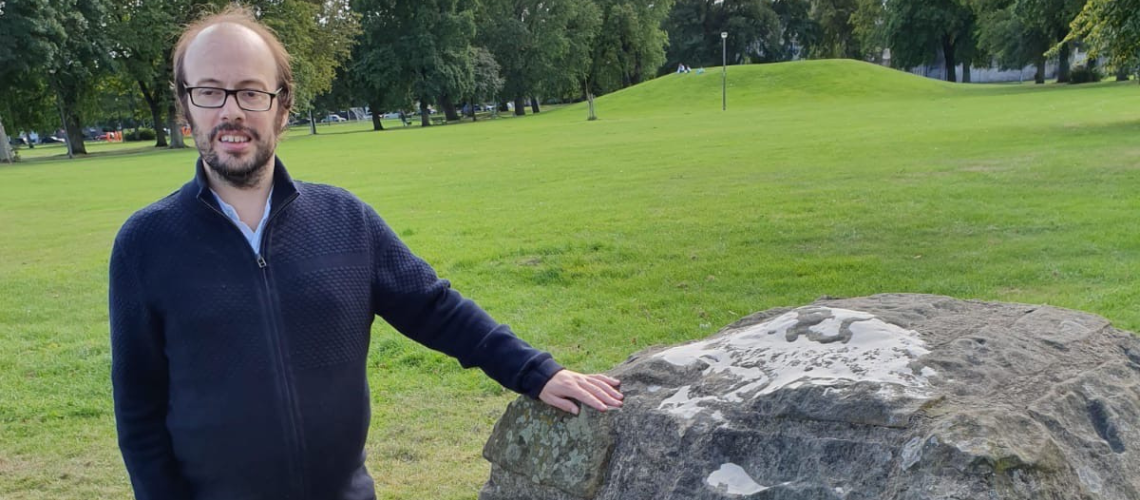
This story is adapted from an article originally written on 22 June 2023
Ben is one of just a handful of participants in the UK to take part in a rare disease trial at the Freeman Hospital in Newcastle. He has a condition called Membranoproliferative Glomerulonephritis (MPGN). This means the tiny network of blood vessels in the kidney that filter waste from blood don’t work as effectively as they should.
The disease can lie dormant for many years, but eventually leads to the decline of the kidney.
“I lost both of my native kidneys to the disease and am currently on my second transplant kidney,” explains Ben.
“I received my first transplant kidney from my sister in 2008, which lasted until 2015. I spent some time on dialysis before receiving my second transplant kidney in November 2016. There is currently no treatment for my condition and eventually my current kidney will also decline.”
Ben first got involved in the trial when his local NHS hospital referred him to the National Renal Complement Therapeutics Centre in Newcastle.
In May 2022, Ben received an NHS letter explaining that there was a study he might be interested in taking part in. The aim of the study was to test a possible treatment for his condition that may prevent his kidney transplant from failing.
The treatment is a type of ‘complement inhibitor’, which can protect the body’s own cells from unwanted attacks by the body’s immune system. It is currently used to treat the rare blood disorder known as paroxysmal nocturnal haemoglobinuria. As well as the commonest cause of blindness, age related macular degeneration.
“Taking part in the study was an easy decision for me to make once I had spoken to the trial professor and discussed it with my girlfriend and family."
- Ben
Ben said: “Research gives me hope that, one day, a treatment might be found. It can also offer hope to others who have the disease. I am very grateful to my local NHS trust for initiating the conversation with the team in Newcastle.”
Taking part in the trial has not always been easy. As Ben’s condition is very rare, there is only one hospital in the UK conducting this research. This means that Ben’s travel time is longer than typically expected for most research participants. 
“I have to travel to Newcastle for each of my appointments, which are every 6 weeks. I also have to prepare a urine sample in the days leading up to each visit and there’s a lot of preparation to think about,” says Ben.
“The study also involves regular biopsies. I was unlucky when I had my first biopsy, as the team discovered that I had cysts on my kidney. Although the cysts were no cause for concern, it made the procedure trickier. It also meant that I had to come back again for the biopsy to be carried out by a specialist.”
In spite of the long journeys and tiredness, Ben does not doubt that he has made the right choice in taking part.
“The study team has been fantastic and the care I have received has been exceptional. It has been a great experience and I would be a fool not to do it. I started taking the study treatment at the end of November 2022. Although it is too early to know what the results of the study will be, I have started to feel a bit better.
“I feel like this is a cool thing to be part of and it makes me feel like I’ve got a chance. Before I started on the trial, I expected to be on dialysis again within a few years. Dialysis is very intrusive, time-consuming, and heavily impacts my day-to-day life. Now, my future is brighter and I will be thrilled if I manage to avoid dialysis for a bit longer thanks to this trial.
“I am fully convinced by the power of research and think it’s important for people to know that research is out there for them.”
How you can get involved with research
Sign up to Be Part of Research to be contacted about a range of health and care research. Or check out our full list of studies to see if one is right for you.
And if taking part in a study doesn’t feel right at the moment there are other ways to get involved in research.




